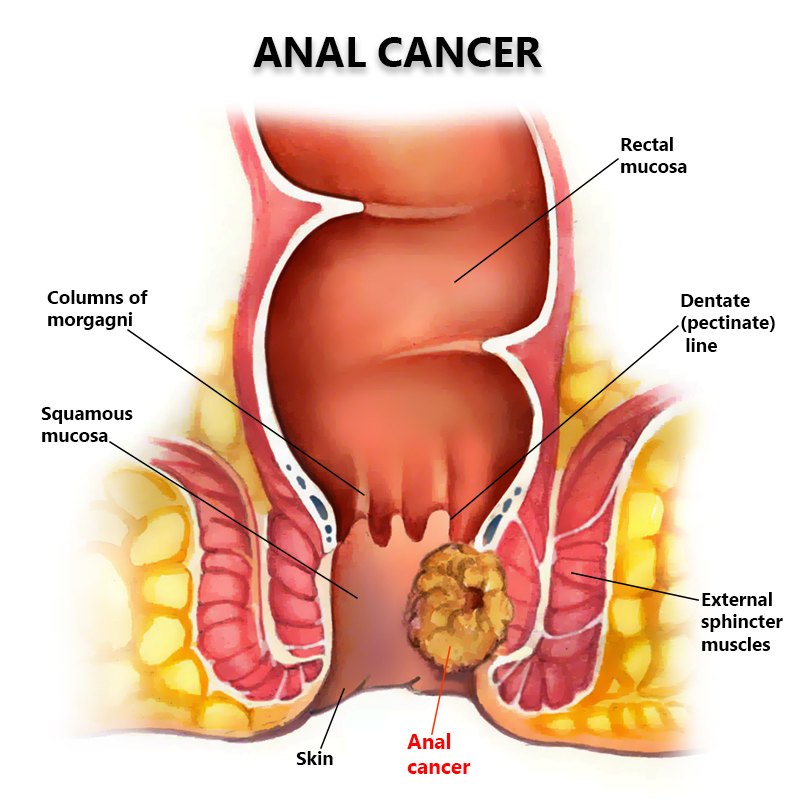
What exactly is Anal Cancer?
Anal cancer occurs when cancer cells form benign or malignant tumours in the tissues of the anus.
The anus is a hole at the bottom of your intestines through which stool exits the body. Anal cancer is uncommon, but when it does occur, it has the potential to spread to other parts of the body. Some noncancerous forms of anal cancer can progress to cancerous status over time.
If you have any of the following:Anal cancer types
Anal cancer is classified into several types based on the type of tumour that develops. A tumour is a type of cancerous growth in the body. Tumors are classified as benign or malignant. If left untreated, malignant tumours can spread to other parts of the body. Tumors include the following:
2. Conditions that are precancerous
3. Cancer of the squamous cells
4. Bowen's disease
5. Cancer of the basal cell
6. Adenocarcinoma
What factors contribute to anal cancer?
Human papillomavirus (HPV)
a sexually transmitted infection, is thought to play a role in the development of anal cancer. It is found in the majority of cases of anal cancer.
What are the signs and symptoms of Anal Cancer?
Anal cancer symptoms can be confused with haemorrhoids, irritable bowel syndrome (IBS), and a variety of other gastrointestinal disorders. These are some examples:- alterations in bowel habits
- thin stools rectum bleeding pain,
- pressure, or formation of a lump near the anus discharge from the anus or itching